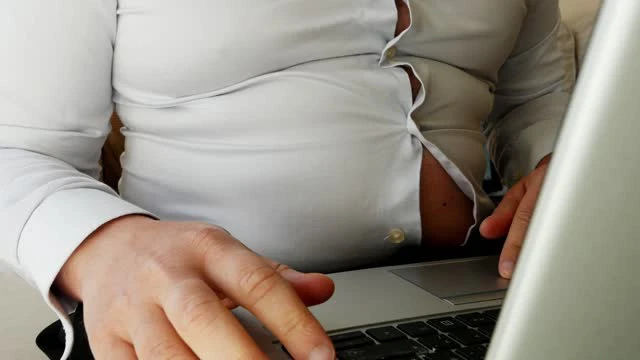

Belly fat, also called visceral fat or abdominal fat, is the excess fat that builds up around the organs in the belly. It’s different from the fat under the skin that you can pinch. Visceral fat wraps around important organs like the liver, stomach, and intestines, and it’s more harmful to your health than the fat under the skin. Having too much visceral fat raises the risk of health issues like heart disease, type 2 diabetes, certain cancers, and stroke. This is because visceral fat is active metabolically and can let out harmful substances that lead to inflammation, insulin problems, and other metabolic issues. Too much visceral fat is also tied to higher cholesterol, high blood pressure, and even Alzheimer’s disease.
Excess belly fat, especially the kind that gathers around your organs, poses a significant health risk by raising the chances of various serious diseases. This type of fat has been connected to a higher likelihood of heart problems, type 2 diabetes, certain cancers such as colorectal and breast cancer, stroke, asthma, dementia, and even early death. Unlike the fat right under your skin, visceral fat is active in metabolism and can let out harmful substances that fuel inflammation, insulin resistance, high cholesterol levels, and other metabolic issues, making it more dangerous. It has also been tied to reduced lung function, heartburn, sleep problems, and migraine headaches. Research published in The New England Journal of Medicine found that accumulating visceral fat can nearly double the risk of premature death.
Types of belly fat

- Subcutaneous Fat: Subcutaneous fat is the fat layer right under your skin. It’s the kind you can pinch. This fat is seen as less harmful than visceral fat, but too much can cause issues like insulin resistance and inflammation. In poultry, subcutaneous fat adds flavor and appearance to the meat. Yet, too much is not good. It lowers the value and affects how efficiently they eat.
- Visceral Fat: Visceral fat, the fat that wraps around internal organs in the belly, poses a higher risk of metabolic diseases like type 2 diabetes, heart issues, and certain cancers compared to subcutaneous fat. In broiler chickens, the buildup of belly fat, similar to visceral fat in humans, gets affected by the food they eat. Diets rich in polyunsaturated fats like sunflower or linseed oils lead to less belly fat accumulation than diets high in saturated or monounsaturated fats.
- Intramuscular Fat: In muscle tissue, there’s a type of fat called intramuscular fat or marbling. Even though it’s not the same as belly fat, it plays a key role in the body’s overall fat makeup. For broiler chickens, the diet can affect the fatty acid content in muscle fat, with more polyunsaturated fatty acids found in muscle fat compared to belly fat. This fat variety is crucial for meat quality, impacting both the taste and tenderness of the meat.
Why does stomach look bigger after breast reduction?
Here is a list of reasons why the stomach may look bigger after a breast reduction surgery:
- Change in body proportions: With smaller breasts, the torso and abdomen area may appear more pronounced or larger in comparison.
- Swelling and fluid retention: It’s common to experience swelling and fluid retention in the abdominal area after surgery as the body sends fluids to promote healing.
- Constipation and bloating: The surgery and medications can sometimes cause constipation, leading to a bloated stomach.
- Reduced physical activity during recovery: Limited movement and exercise during the initial recovery period can contribute to weight gain or prevent weight loss in the abdominal area.
- Hormonal changes: The surgery can sometimes cause hormonal fluctuations, which may lead to weight redistribution or difficulty losing weight in certain areas like the belly.
- Existing weight distribution pattern: For some individuals, their natural weight distribution tends to favor carrying more weight in the abdominal region, which may become more noticeable after breast reduction.
- Muscle weakness in the core: If the core muscles were weak before surgery, the change in breast size can make the abdominal area appear more prominent or protruding.
- Psychological factors: The change in body image and proportions after surgery can sometimes lead to a distorted perception of one’s stomach size.
Effective Strategies for Losing Belly Fat after Breast Reduction
Based on the search results provided, here is a list of effective strategies for losing belly fat after breast reduction surgery, along with a description of each point:
1. Diet and Nutrition
Focus on eating a variety of healthy foods like fruits, veggies, lean meats, and whole grains. These foods are packed with nutrients, help you feel full, aid in losing weight, and give your body the vitamins and minerals it needs to recover. Try to cut back on processed foods, sugary drinks, and foods high in saturated fats. These can lead to extra fat around your belly.
2. Exercise and Physical Activity
Try to do cardio exercises like walking, running, biking, or swimming for 30-60 minutes most days of the week to burn calories and lower overall body fat. Add strength training to your routine to build lean muscle, which can help speed up your metabolism and assist in losing fat. Give high-intensity interval training (HIIT) workouts a shot as they’re great for reducing belly fat.
3. Lifestyle Modifications
Get better sleep because not getting enough can mess with your hormones and lead to gaining weight and more belly fat. Try meditation, yoga, or deep breathing to manage stress and lower cortisol levels to avoid stress-related belly fat. Move more every day by adding extra steps to your routine.
4. Professional Guidance and Support
Get advice from healthcare providers, dietitians, or fitness experts for personalized guidance and customized plans based on your specific needs and recovery status. They can help you with safe exercise routines, dietary tips, and strategies for managing your weight and body composition after breast reduction surgery.
5. Non-Surgical Body Contouring Procedures
Consider trying non-surgical body contouring treatments like CoolSculpting or SculpSure if your doctor recommends them. These procedures can target and reduce stubborn fat in the belly area. You can also combine them with a breast reduction or have them done after surgery to improve your overall body contouring results.
Patience and Consistency
Losing belly fat after breast reduction surgery takes time and needs patience and consistency. You have to approach it holistically by combining diet, exercise, and lifestyle changes. Stay motivated by checking out success stories of people who have reached their weight loss goals post breast reduction surgery.
Comments
comments